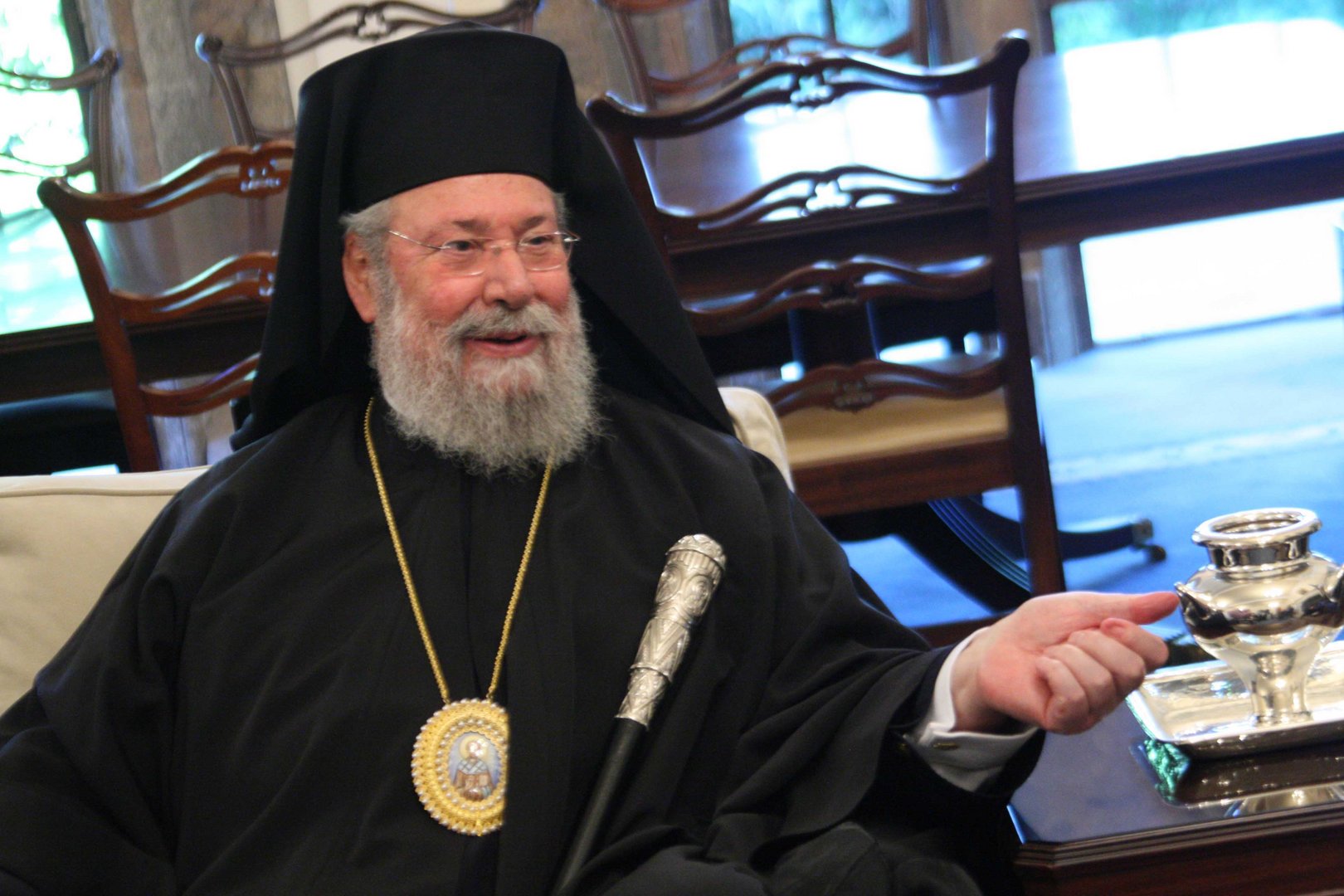Archbishop Chrysostomos II, who passed away on Monday morning, after a long battle with cancer, might not have been very interested in questions of the faith and spiritual matters, but in his 16 years as the leader of the Orthodox Church of Cyprus, he proved a very capable administrator and manager.
While these are not qualities usually associated with an archbishop, they were what the church needed in 2006, when he was enthroned. In the preceding years, the incumbent was ill, incapable of performing his duties, and although Chrysostomos as Bishop of Paphos had the role of caretaker, his powers were restricted. Only after his election, which he secured despite taking far fewer votes than the other two candidates, was he able to steady the ship and successfully introduce the necessary reforms. He also steered the church through the 2013 economic crisis, when it lost assets worth many tens of millions of euros.
He never received any credit for his pragmatic leadership and his undoubted managerial skills, probably because he regularly appeared in the news for the wrong reasons. His habit of always speaking his mind in public, without any thought who would be upset or take offence, often earned him negative press and attacks in social media for his backwardness and insensitivity, especially from the younger members of the population.
This was who he was, a man not prepared to modify his views in order to be popular. He had no communications advisors to tell him what to say in public, he was oblivious to political correctness and had no qualms about displaying his insensitivity. This disregard for public sensitivities showed him up to be homophobic, racist and sexist at times, but the criticism he invited never stopped him from speaking his mind in public, because he quite clearly enjoyed ruffling feathers.
He continued the church’s traditional, hard line on the Cyprus problem, frequently mouthing off against peace talks and supporting the preservation of the status quo. He supported division, fully aware that this would lead to permanent partition, but like his predecessor considered this preferable to sharing power with the Turkish Cypriots.
Although he increased the numbers of bishops in the Holy Synod, he maintained the unity of the church until the issue of the recognition of the independence of the Ukrainian Orthodox Church arose. This split the synod in two with many bishops aligning themselves with the Russian Patriarchate and opposing the recognition. Chrysostomos showed his strong leadership, recognising the Ukrainian Church and ignoring the pro-Russia bishops, who refused to conduct joint services with him in retaliation. It took some time, but the rift was eventually mended.
Leaving aside the politics, Chrysostomos also initiated commendable charity work that he never publicised. Under him the church spends €3 million on charity annually, which was not the case before him, supporting poor families and people in need. And to his credit, he never sought credit or praise for the good work he did.







Click here to change your cookie preferences